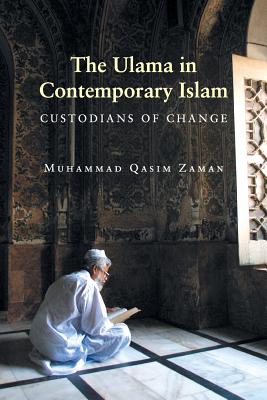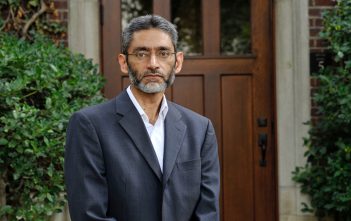

 Princeton University Press
Princeton University Press
The Ulama in Contemporary Islam: Custodians of Change


Key Metrics
- Muhammad Qasim Zaman
- Princeton University Press
- Paperback
- 9780691130705
- 9.18 X 6.1 X 0.76 inches
- 0.96 pounds
- Religion > Islam - General
- English
 Secure Transaction
Secure TransactionBook Description
From the cleric-led Iranian revolution to the rise of the Taliban in Afghanistan, many people have been surprised by what they see as the modern reemergence of an antimodern phenomenon. This book helps account for the increasingly visible public role of traditionally educated Muslim religious scholars (the `ulama) across contemporary Muslim societies. Muhammad Qasim Zaman describes the transformations the centuries-old culture and tradition of the `ulama have undergone in the modern era--transformations that underlie the new religious and political activism of these scholars. In doing so, it provides a new foundation for the comparative study of Islam, politics, and religious change in the contemporary world.
While focusing primarily on Pakistan, Zaman takes a broad approach that considers the Taliban and the `ulama of Iran, Egypt, Saudi Arabia, India, and the southern Philippines. He shows how their religious and political discourses have evolved in often unexpected but mutually reinforcing ways to redefine and enlarge the roles the `ulama play in society. Their discourses are informed by a longstanding religious tradition, of which they see themselves as the custodians. But these discourses are equally shaped by--and contribute in significant ways to--contemporary debates in the Muslim public sphere.
This book offers the first sustained comparative perspective on the `ulama and their increasingly crucial religious and political activism. It shows how issues of religious authority are debated in contemporary Islam, how Islamic law and tradition are continuously negotiated in a rapidly changing world, and how the `ulama both react to and shape larger Islamic social trends. Introducing previously unexamined facets of religious and political thought in modern Islam, it clarifies the complex processes of religious change unfolding in the contemporary Muslim world and goes a long way toward explaining their vast social and political ramifications.
Author Bio
Muhammad Qasim Zaman joined the Department in 2006. He has written on the relationship between religious and political institutions in medieval and modern Islam, on social and legal thought in the modern Muslim world, on institutions and traditions of learning in Islam, and on the flow of ideas between South Asia and the Arab Middle East.
He is the author of Religion and Politics under the Early Abbasids (1997), The Ulama in Contemporary Islam: Custodians of Change (2002), Ashraf Ali Thanawi: Islam in Modern South Asia (2008), Modern Islamic Thought in a Radical Age: Religious Authority and Internal Criticism (2012), and Islam in Pakistan: A History (2018). With Robert W. Hefner, he is also the co-editor of Schooling Islam: The Culture and Politics of Modern Muslim Education (2007); with Roxanne L. Euben, of Princeton Readings in Islamist Thought (2009); and, as associate editor, with Gerhard Bowering et al., of the Princeton Encyclopedia of Islamic Political Thought (2013).
Among his current projects is a book on South Asia and the wider Muslim world in the eighteenth and the nineteenth centuries.
Source: Princeton University Department of Religion
Videos
No Videos
Community reviews
Write a ReviewNo Community reviews